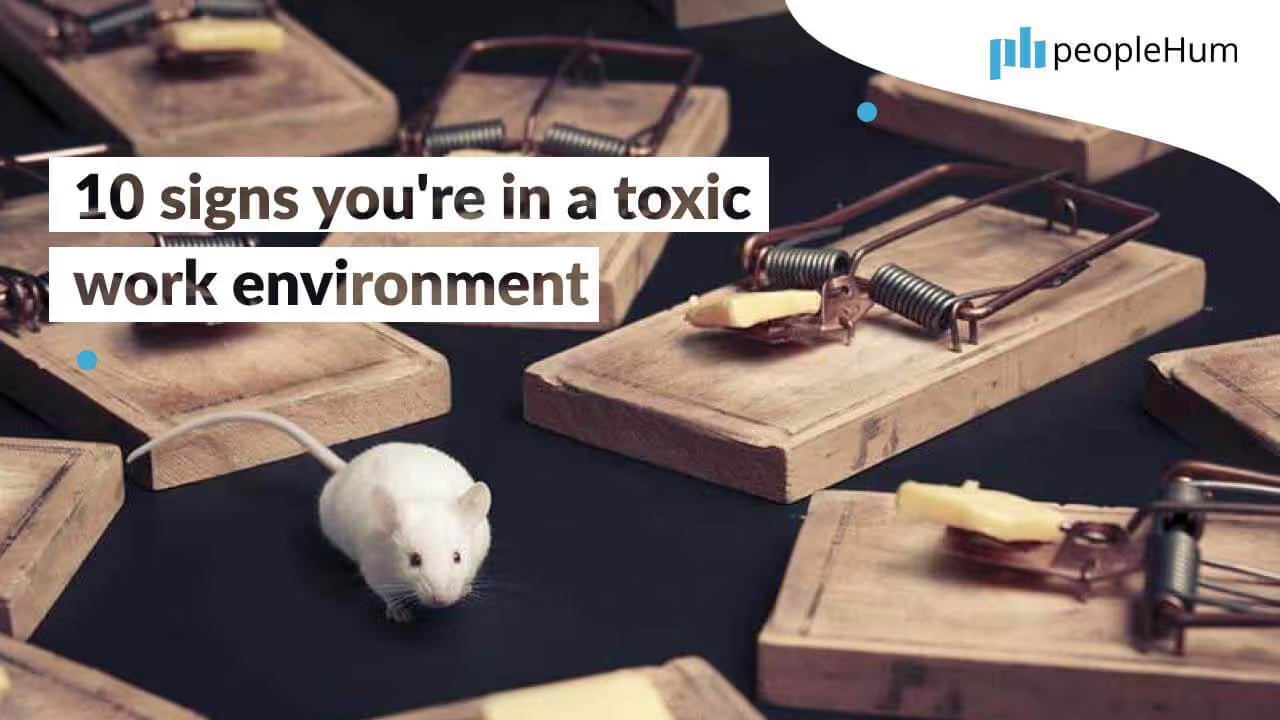According to a study, a toxic work environment can encourage more than 40% of employees to change jobs. To avoid such situations, this article lists the signs of a bad atmosphere so you can act on before it's too late.
10 signs you're in a toxic work environment
1. Significant turnover
Even if voluntary departures, those linked to family reasons or those caused at the initiative of the employer exist in any company, the turnover rate is generally considered by many specialists as an indicator of the prevailing working in the social climate.
Staff turnover involves additional costs (recruitment, integration of new ones, etc.), prevents talent retention and reduces the cohesion of teams. If you notice many departures within your teams, ask yourself the right questions about your recruitment, management and even your business environment (a financial situation, competitiveness on the market, etc.).
Turnover is a separate problem and concerns 82% of HR managers. It is nonetheless one of the most important indicators of a bad atmosphere at work.
2. Repeated absences
The (extreme) stage of resignation is often preceded by recurrent absences from the employee. Repeated sick leave may imply a significant state of fatigue for the employee and a loss of motivation.
Short-term demotivation remains entirely human and conceivable. But in the long term, it will have consequences both at the company level (costs of absenteeism and sick leave to bear) and at the level of the employee who will no longer be as productive.
3. Loss of daily motivation
Without going as far as being absent, an employee can show many signs on a daily basis that attest to his loss of motivation at work. Like late arrivals, much longer and more frequent breaks than usual, less involvement in activities, lower productivity, lower quality of work, etc.
If each employee has their own pace of work, try to ensure regular monitoring to protect yourself from a significant and recurring decrease in their productivity reflecting their desire to look elsewhere.

4. Malicious communication around the company
Negative communication around the company develops systematically in the case of a harmful social environment. Employees become more dissatisfied and no longer hesitate to share them during their discussions with colleagues.
In addition, it is common today to use forums or exchange platforms to express bad experiences at work, or worse, to spread rumors aimed at harming your business. This will be all the more dangerous as it will ruin your e-reputation and your attractiveness towards the outside world and young talents in particular.
To remedy this, do not hesitate to examine your e-reputation in-depth and to regularly consult notices concerning your company in specialized sites (Linkedin, Glassdoor, etc.).
5. Reduced internal communication
In addition to harmful external communication, the toxic work environment can also generate harmful internal communication for your own activities. Employees can reduce their communications to the absolute minimum and behave in an individualistic way when they no longer see their future in their current company. This will represent a real obstacle to your professional activities.
You can detect such problems when you find it difficult to obtain information that is essential for the proper functioning of your business. Or when you get radically different answers to the same question, showing a glaring lack of communication between your teams.
6. Too much internal rivalry
If competition is important to pull your employees up, it can be harmful when it weighs daily. Sometimes your employees forget that they are part of a “team” where their colleagues are partners with whom they must collaborate. Instead, they see them as their rivals, which can distorts professional relationships.
This is manifested by greater prudence of your employees and a greater isolation which is easily reflected in their daily lives (for example eating all the time alone at the office and not going to team lunches, no coffee break between colleagues, etc.)
7. Favoritism
Like turnover, favoritism is considered a classic indicator of a toxic work environment. Faced with such situations, your employees will feel sidelined and not valued. Then encouraging them to contribute to the bad climate of your business.
To avoid this, have an ethics charter and clear regulations that do not tolerate abuse (sexism, racism, abuse of power, etc.). Then make sure that it is applied to everyone (and not just a few people) and that your employees’ promotions and rewards are only awarded on the basis of their merit.
8. Managers not sufficiently involved
A manager who is too absent from the demands of his teams or who never meets his obligations or requirements can directly influence the atmosphere that reigns within his teams. They will no longer have confidence in him.
Likewise, a manager who is too present or too imposing will have the same negative consequences. If he chastises or shouts often at his teams, if he shows no sign of recognition towards his colleagues or if he continually makes derogatory remarks, this will undoubtedly influence the social climate of your company.
Try to ensure solid and reciprocal links between managers and their teams. A manager must be open to others and be available so that they no longer feel isolated. Likewise, teams must keep in touch with their leader so that he feels involved in their team lives.
9. Little presence of HR
HR can have a key role in avoiding conflict. They can act as mediators in a company and manage problems between employees and managers.
If they fail in their roles or if they adopt questionable behaviors, this will strongly influence the well-being of your employees who will feel more isolated.
10. No activities outside of work
Teams who rub shoulders for months or years tend to organize events outside of work: afterworks, team lunches, departure pots, trips, integration evenings, etc. to get out of the sometimes monotonous framework of work. If your teams organize little or never such activities, you might wonder about the cohesion of your company.





































.avif)












